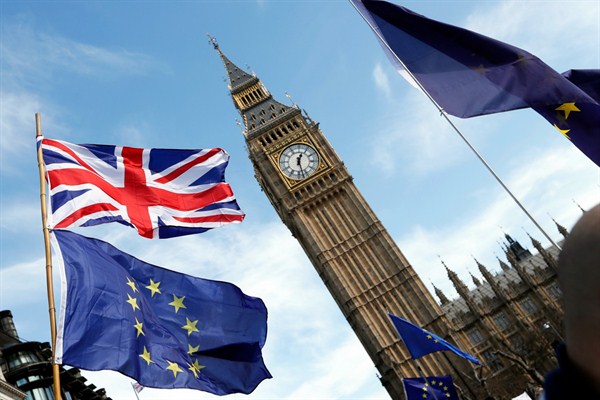After clearing all the legal and political obstacles with surprising ease, British Prime Minister Theresa May filed the papers for the United Kingdom’s divorce from the European Union in Brussels on March 29. In political terms, there is no way back for the U.K., now that it has pulled the trigger on Article 50 of the EU’s Lisbon Treaty, formalizing its departure from the bloc. But the U.K. finds itself only at the end of the beginning of the long and arduous road toward Brexit. And while the focus for the next two years will be on the British-European relationship and the EU’s internal cohesion, Brexit has also set in motion a series of centrifugal forces within the United Kingdom itself.
The union of England, Wales, Scotland and Northern Ireland is already feeling the Brexit strain. While both England and Wales voted to leave the EU with clear majorities—53.4 and 52.5 percent, respectively—neither Scotland, with 38 percent, nor Northern Ireland, with 44.2 percent, showed a strong desire to do so. Though May initially promised to consult widely with the devolved legislatures in Edinburgh and Belfast and stressed the “precious bond between the four nations,” the prime minister has only further alienated the Scots and the Northern Irish by unilaterally opting for a “hard” Brexit—a departure from both the EU single market and its customs union.
Recent elections in Northern Ireland have for the first time returned an assembly in which Unionist parties no longer hold a majority, and handed the Irish nationalists of the Sinn Fein party their best result yet. Last Tuesday, just hours before May officially pulled the Brexit trigger, Scotland’s Parliament voted to hold yet another referendum on Scottish independence.

